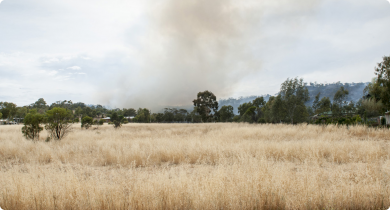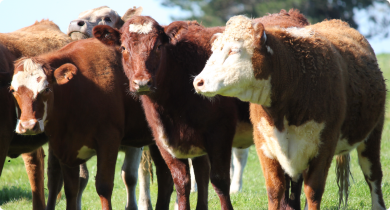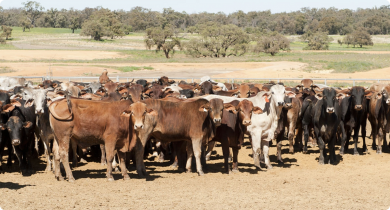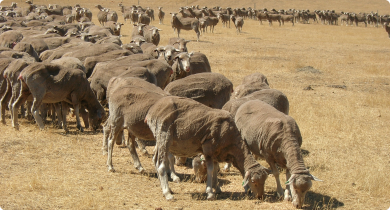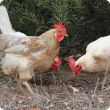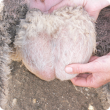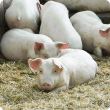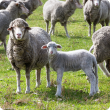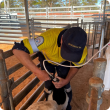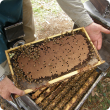Livestock & animals
The Department of Primary Industries and Regional Development supply chain support, research and development and rigorous biosecurity systems underpin the economic success of Western Australia’s livestock industries. In 2011/12, the WA livestock industries contributed 26% of the state’s agriculture, fisheries and forestry production, worth approximately $2 billion at the farm gate.
WA is a world leader in live exports, super fine wool production and dryland sheep and grain systems. Both cattle and sheep systems are focused on export markets to Asia and the Middle East. WA also has innovative, world-class integrated dairy and pork industries meeting local and South East Asian demand for safe, fresh milk and pork. The WA poultry industry is growing strongly as a result of increasing domestic consumption.
Global demand for high-quality, safe animal protein and products produced according to high animal welfare standards will continue to rise in coming years. Increasingly DAFWA will partner with industry -- locally, nationally and internationally -- in transformational business projects to capitalise on this demand.
Filter by search
Filter by topic
- Biosecurity & quarantine (83) Apply Biosecurity & quarantine filter
- Biosecurity (83) Apply Biosecurity filter
- (-) Remove Livestock biosecurity filter Livestock biosecurity
- (-) Remove Livestock species filter Livestock species
- Pests, weeds & diseases (73) Apply Pests, weeds & diseases filter
- Diseases (72) Apply Diseases filter
- Livestock health & diseases (72) Apply Livestock health & diseases filter
- Livestock disease surveillance (69) Apply Livestock disease surveillance filter
- Sheep (35) Apply Sheep filter
- Beef cattle (26) Apply Beef cattle filter
- Dairy cattle (21) Apply Dairy cattle filter
- Livestock management (21) Apply Livestock management filter
- Emergency animal disease preparedness (19) Apply Emergency animal disease preparedness filter
- Poultry & birds (15) Apply Poultry & birds filter
- Pigs (14) Apply Pigs filter
- Goats (11) Apply Goats filter
- Management & reproduction (11) Apply Management & reproduction filter
- Livestock movement & identification (11) Apply Livestock movement & identification filter
- Horses (10) Apply Horses filter
- Feeding & nutrition (4) Apply Feeding & nutrition filter
- Control methods (4) Apply Control methods filter
- Chemicals (4) Apply Chemicals filter
- Residues in livestock (3) Apply Residues in livestock filter
- Wildlife biosecurity (3) Apply Wildlife biosecurity filter
- Preventing residues (3) Apply Preventing residues filter
- Importing to Western Australia (2) Apply Importing to Western Australia filter
- Land use (2) Apply Land use filter
- Quarantine (2) Apply Quarantine filter
- Veterinary chemicals (2) Apply Veterinary chemicals filter
- Importing animals (2) Apply Importing animals filter
- Food, export & investment (2) Apply Food, export & investment filter
- Bees (2) Apply Bees filter
- Camelids (2) Apply Camelids filter
- Climate, land & water (2) Apply Climate, land & water filter
- Emergency response (2) Apply Emergency response filter
- Small landholders in Western Australia (1) Apply Small landholders in Western Australia filter
- Stockfeed (1) Apply Stockfeed filter
- Land use planning (1) Apply Land use planning filter
- Biosecurity and Agriculture Management Act (1) Apply Biosecurity and Agriculture Management Act filter
- Biosecurity governance (1) Apply Biosecurity governance filter
- Export services (1) Apply Export services filter

